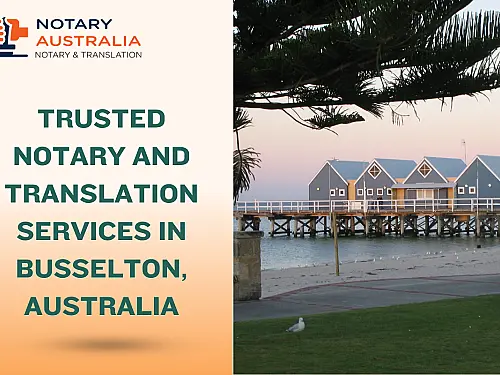



How to Notarize Documents for a Student Visa in Australia
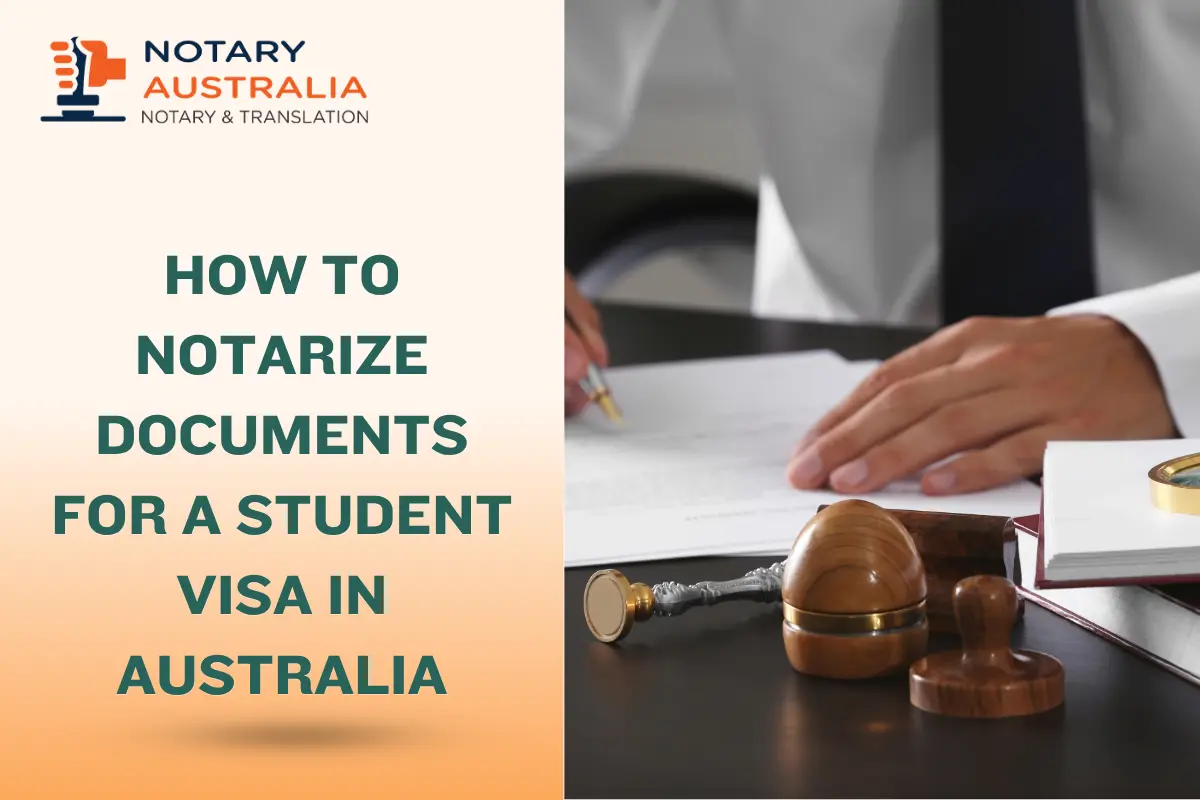
Table of Contents
Applying for a student visa is an exciting milestone — but it comes with important paperwork. One essential step that many students overlook is getting certain documents notarized. Whether you're applying to study in Australia, the US, UK, Canada, or any other country, notarized documents are often a legal requirement for embassy submissions, university applications, and immigration processing.
In this complete guide, you'll learn everything you need to know about student visa notarization, including what documents need it, where to get them notarized, and how to avoid common mistakes.
What Is a Student Visa Notary and Why Is It Required?
A notary public is a legally authorized professional who verifies the authenticity of documents and certifies them as true copies. For student visa applications, embassies, consulates, and education institutions often require certain documents to be:
- Certified as true copies
- Authenticated with an official seal
- Signed and witnessed by a licensed notary
This is done to ensure the documents are genuine, accurate, and legally compliant for immigration and academic purposes.
List of Student Visa Documents That May Require Notarization
Depending on your destination country, education level, and visa category, the following documents may need to be notarized:
| Document Type | Use Case |
|---|---|
| Passport Copy | Proof of identity |
| Academic Records | Transcripts, degrees, diplomas |
| University Admission Letter | Confirmation of enrollment |
| Financial Documents | Bank statements, sponsor affidavits, scholarship letters |
| Proof of English Proficiency | IELTS, TOEFL, or PTE score reports |
| Birth Certificate | For minor applicants or identity verification |
| Affidavit of Support | Sponsor or parent funding declaration |
| Parental Consent Letter | Required for minors applying for visas |
| Travel Consent Forms | For international travel as a student |
If your documents are in a language other than English, NAATI-certified translations may also be required — and both the original and the translation often need notarization.
Online, Mobile, and Same-Day Notary Options for Students
Online Notarization
With e-notary services, students can notarize their documents from anywhere using secure video verification.
Common options include:
- Remote notary for student visa
- Digital notary for academic records
- Online notarized affidavit of support
Pro Tip: Check if your embassy accepts digitally notarized documents before proceeding.
Mobile Notary Services
Busy preparing to move abroad? Many notaries offer mobile services that come to your home, school, or university campus.
- Ideal for urgent or last-minute notarizations
- Especially helpful for students without transportation
Same-Day Notarization
Need your documents urgently?
- 24-hour student visa notary available in most cities
- Instant appointment bookings online or via phone
- Great for tight embassy deadlines
Embassy and Country-Specific Requirements for Notarized Documents
Country-Based Notary Guidelines
| Country | Notarized Documents Required |
|---|---|
| USA | Passport copy, bank statements, I-20 support docs |
| UK | Academic qualifications, financial evidence, passport |
| Canada | Admission letter, proof of funds, education docs |
| Australia | Identity, academic records, GTE statement |
| EU countries | School letters, health insurance, ID proof |
Embassy and consulate staff often reject non-notarized or incorrectly formatted documents, so getting it done properly matters.
Notarizing Identity, Academic, and Financial Proof Documents
Identity Documents
These must be current and presented in original form:
- Passport
- Birth certificate
- National ID
Academic Documents
- University transcripts and degree certificates
- School-leaving certificates
- Letter of scholarship or grant funding
All documents should be certified true copies by a notary public.
Financial Proof
- Bank statements (not older than 3 months)
- Property valuation documents
- Parent or sponsor income certificates
For students under sponsorship, a notarized affidavit of financial support is a must.
Minor Applicants and Parental Consent Forms
Are you under 18 and applying for a student visa?
In many countries, you must submit:
- A parental consent letter
- Notarized guardian appointment documents
- Proof of custody or shared parenting rights if applicable
These documents must be notarized and sometimes legalized (apostilled or embassy-authenticated).
Avoiding Common Mistakes in Notarized Visa Documentation
Mistakes in notarization can delay your visa or result in outright rejection.
Common Errors to Avoid:
- Using a JP (Justice of Peace) instead of a notary public (often not accepted internationally)
- Submitting scanned copies without notarization
- Missing or incorrect document translations
- Forgetting to sign in front of the notary
- Providing expired ID or mismatched details
Legalisation, Apostille, and Embassy Compliance
In addition to notarization, some documents may require:
- Apostille (for Hague Convention countries)
- Embassy or consular legalisation (for non-Hague countries)
- DFAT authentication (for Australian-issued documents)
Always confirm with your embassy if legalisation is needed after notarization.
How to Book a Student Visa Notary in Australia
Booking Options:
- Online platform (fastest)
- University notary liaison (some offer on-campus notaries)
- Mobile notary service (home visits)
- Notary public office (traditional appointment)
What to Bring:
- Original documents and valid photo ID
- Printed or completed forms (where required)
- Translations if applicable
FAQs: Student Notarization Questions Answered Clearly
Q: Can I notarize my documents online for a student visa?
Yes. Many notaries now offer secure video notarization.
Q: Are notarized documents enough for visa applications?
Not always. Some embassies require apostille or legalisation as well.
Q: Can a Justice of the Peace notarize my student visa documents?
Usually not. Only a licensed notary public is accepted by embassies.
Q: How long does notarization take?
Most appointments take 15–30 minutes. Same-day service is often available.
Final Thoughts
Securing a student visa is a multi-step process, and notarizing your documents is one step that can’t be skipped. From academic records and identity verification to affidavits and financial proof, making sure your paperwork is notarized correctly will save time, stress, and risk of visa refusal.
Whether you choose an online, mobile, or in-office notary, be sure to check the requirements for your destination country and embassy — and don’t leave it to the last minute.

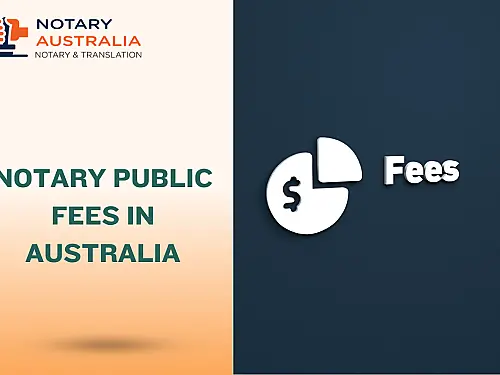

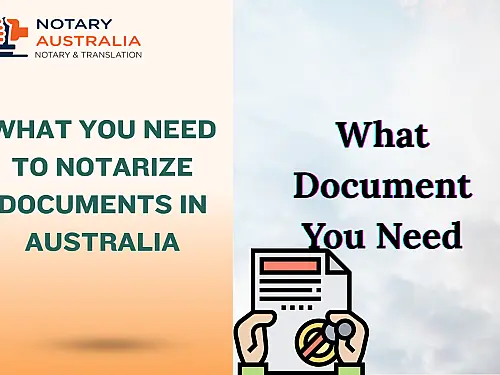
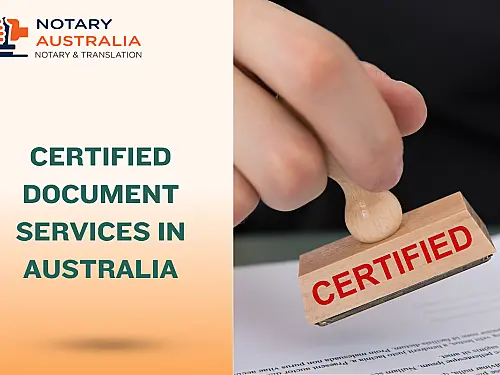
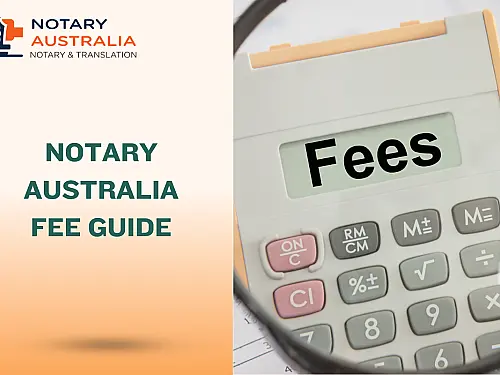

-thumb.webp)


